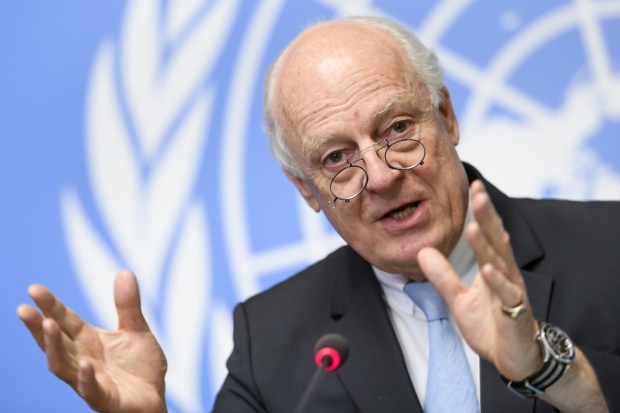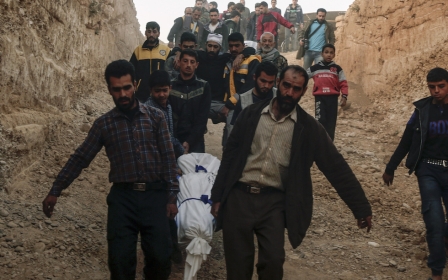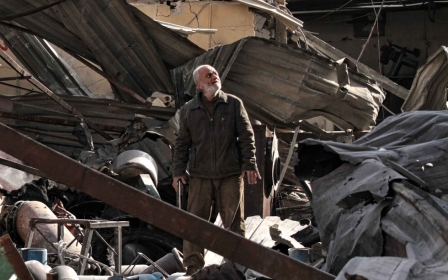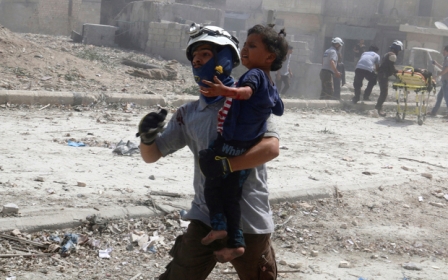Syrian government agrees to Eastern Ghouta ceasefire, attending Geneva talks
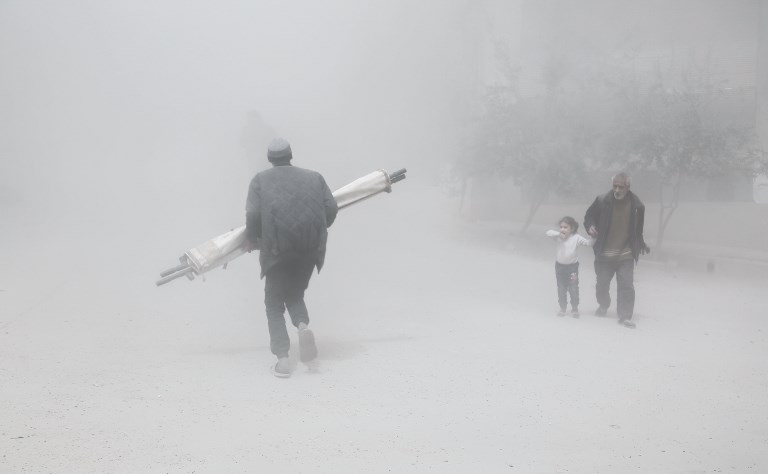
The Syrian government on Tuesday announced that it would attend peace talks in Geneva on Wednesday, and agreed to a ceasefire in the besieged Eastern Ghouta neighbourhood outside Damascus.
President Bashar al-Assad's negotiators did not travel to Geneva for the opening of the UN-backed talks on Tuesday, but have announced they will arrive a day late, on Wednesday.
But they warned the UN they would not tolerate any discussion of Assad’s removal from power.
Opposition representatives, united in one delegation for the first time, were scheduled to meet UN mediator Staffan de Mistura on Tuesday, who announced that the government had agreed to a ceasefire in the besieged Eastern Ghouta neighbourhood outside the capital.
"Russia has proposed and the government has accepted a ceasefire in Eastern Ghouta," de Mistura told reporters in Geneva.
The Syrian Observatory for Human Rights, the war monitor, said that three people were killed on Tuesday, before the ceasefire was announced, with 15 injured, but that it was less intense than previous days.
Government air strikes have killed dozens of civilians in Eastern Ghouta in recent weeks, which has also been suffering from the effects of a long siege.
But de Mistura cautioned that it was yet to be seen whether the ceasefire would transpire on the ground.
"Now we need to see whether this takes place but it's not coincidental that this has actually been proposed and agreed upon just at the beginning of this session (of peace talks in Geneva)."
After arriving in Geneva late on Monday, rebel delegation chief Nasr al-Hariri told reporters that his camp was still insisting on Assad's removal as part of any peace deal, defying calls for moderation.
Damascus had initially refused to confirm it would attend the talks with the opposition maintaining its hardline stance on the president, but the UN and Syria's official Sana news agency have announced that government representatives will arrive on Wednesday.
Before agreeing to come, Assad's envoys also secured key concessions from de Mistura.
"During intense discussions over the last two days, de Mistura pledged to the government delegation that there would not be any... discussion of the Riyadh statement," an opposition text that references Assad's removal, a source close to the government told AFP.
Keeping the Assad issue off the table may also suit de Mistura, who has said he wants this round to focus on a new constitution for Syria and UN-supervised elections.
The government and opposition negotiators will have the chance to hold direct talks for the first time, but it is not clear if they will take it, Mistura said.
"We are going to offer it. We will see if this takes place. But we will be offering that," he said.
Same old deadlock
The UN envoy had voiced hope the coming round would mark the first "real negotiation" on a possible deal to end the six-year war which has claimed more than 340,000 lives and left Syria in ruin.
Well ahead of the talks, de Mistura had warned the opposition that intransigence on the Assad issue might no longer be tenable.
In September, he said the opposition needed to be "realistic" and accept that "they didn't win the war", a statement supported by facts on the ground.
Backed by Russia's decisive military support, Assad's government has regained control of 55 percent of the country, including major cities including Damascus, Aleppo, Homs and Hama.
The rest is carved up between rebel factions, IS militants and Kurdish forces.
The decision last week by Syrian opposition groups to send a single delegation to Geneva raised hopes of a possible breakthrough.
The new rebel negotiating team includes members of the Saudi-backed High Negotiations Committee (HNC), which insists on Assad's departure, as well as representatives of groups based in Moscow and Cairo that have a more moderate stance on the president.
But without a formal notification from the rebel side that its position had softened, the talks may remain deadlocked.
UN overshadowed
That could spell more trouble for the UN's peace push, which has been overshadowed by negotiations spearheaded by Moscow.
Russia and its fellow Assad ally Iran, along with rebel-backer Turkey, have hosted negotiations in the Kazakh capital of Astana that led to the creation of four "de-escalation zones" which produced a drop in violence, though deadly air strikes and battles continue in some areas.
Western powers are concerned that Russia is seeking to take a leading role in the peace process and will carve out a settlement that will largely favour Assad.
US President Donald Trump said on Monday following a phone conversation with French President Emmanuel Macron that the two men agreed the Geneva talks were the "only legitimate forum for achieving a political solution in Syria".
De Mistura was also scheduled to meet the ambassadors from Security Council permanent representatives - Britain, France, China, Russia and the United States - in Geneva on Tuesday to discuss the talks.
Middle East Eye propose une couverture et une analyse indépendantes et incomparables du Moyen-Orient, de l’Afrique du Nord et d’autres régions du monde. Pour en savoir plus sur la reprise de ce contenu et les frais qui s’appliquent, veuillez remplir ce formulaire [en anglais]. Pour en savoir plus sur MEE, cliquez ici [en anglais].


